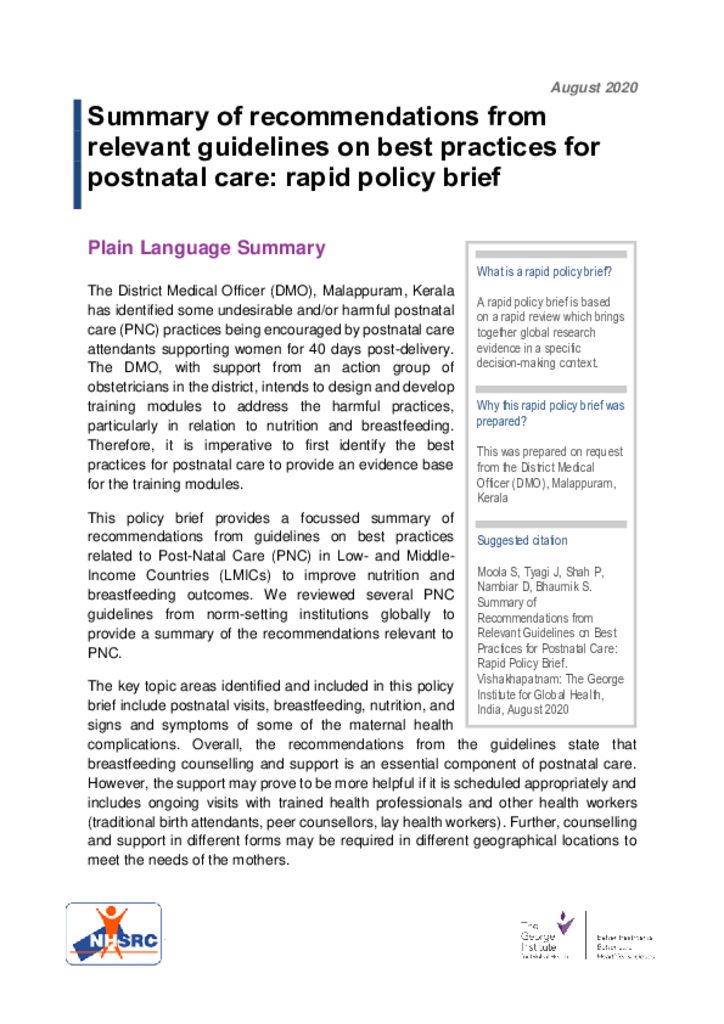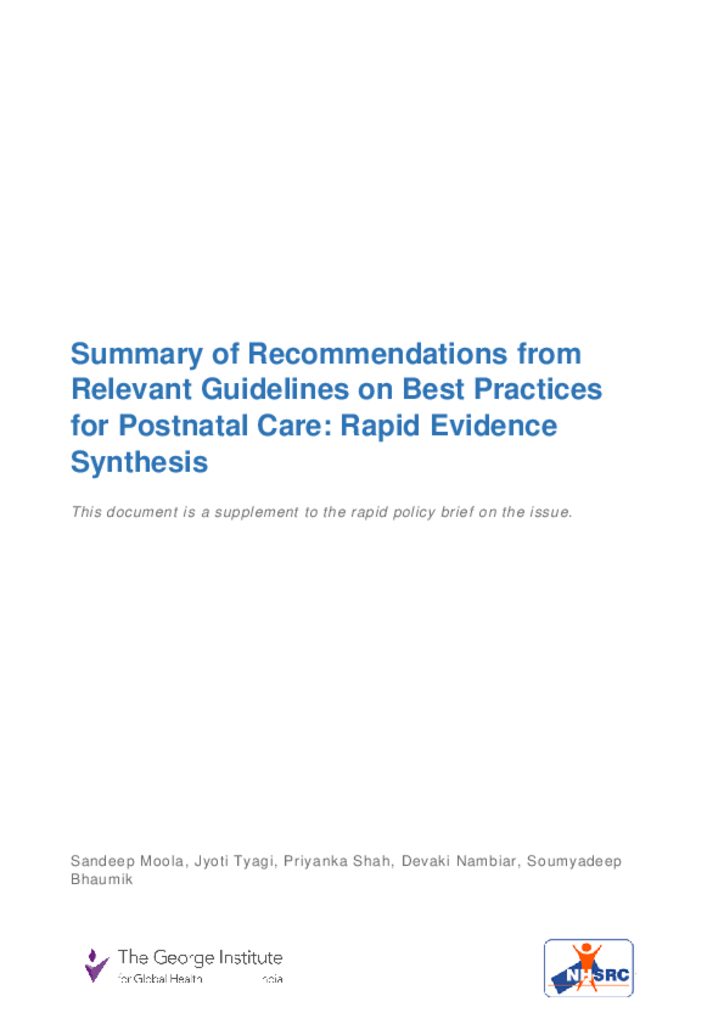
Summary of recommendations from relevant guidelines on best practices for postnatal care: rapid policy brief
The District Medical Officer (DMO), Malappuram, Kerala identified some undesirable and/or harmful postnatal care (PNC) practices being encouraged by post-natal care attendants supporting women for 40 days post-delivery. The DMO, with support from an action group of obstetricians in the district, intends to design and develop training modules to address the harmful practices, particularly in relation to nutrition and breastfeeding.
She requested our RES team to conduct a rapid review that could support her in this policy endeavour. The team together with the DMO concurred on summarising evidence on three relevant components: recommendation from relevant guidelines on best practices for postnatal care, harmful postpartum beliefs and practices of mothers in India, and training of post-natal care attendants for post-natal care, nutrition and breastfeeding. This would provide the DMO with an evidence base to develop the training modules.
This policy brief provides a focussed summary of recommendations from guidelines on best practices related to Post-Natal Care (PNC) in Low- and Middle-Income Countries (LMICs) on improving nutrition and breastfeeding outcomes.
A few key policy options:
Postnatal visits/contacts
- Healthy mothers and newborns should receive care in the facilities for at least 24 hours post-delivery, if delivered in a health facility.
- The first postnatal contact should be as soon as possible within 24 hours of birth, if birth is at home.
Breastfeeding
- Mothers should be encouraged to exclusively breastfeed for about the first six months of a baby's life, followed by breastfeeding in combination with the introduction of complementary foods until at least 12 months of age.
- Breastfeeding should be continued for as long as mutually desired by mother
and baby.
Nutrition
- Mothers should be advised to increase their intake of food and fluid, and to take foods rich in calories, proteins, iron, vitamins and other micro-nutrients.
- Iron and folic acid supplementation is recommended for at least three months
post childbirth.
Family planning/Contraception and Immunisation
- Parents should be counselled on family planning, and the various contraceptive options available.
- Parents should be provided appropriate information on the benefits of immunisation.
Use of lay health workers in providing postnatal care
- Lay health workers should be used to promote exclusive breastfeeding, adequate nutrition and for providing iron and folate supplements during pregnancy.
Appropriate training should be provided to lay health workers and their trainers and supervisors on various key aspects of postnatal





